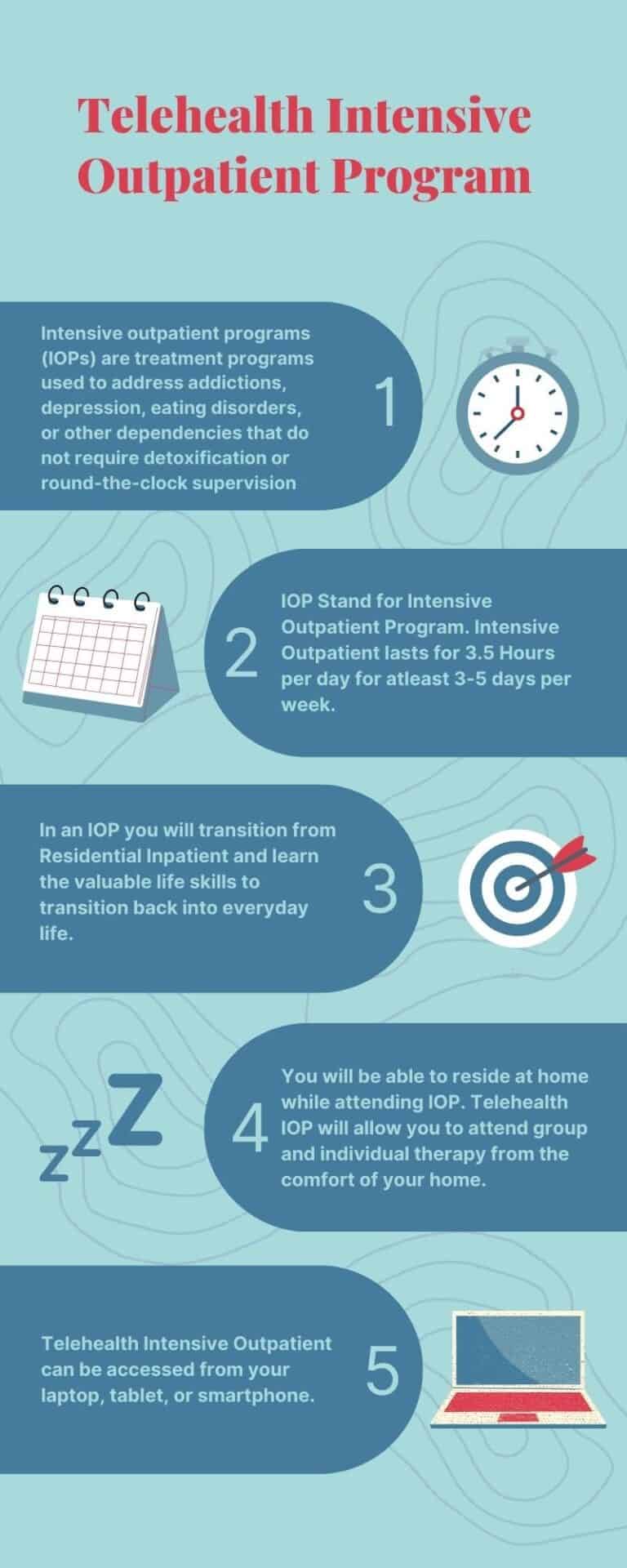Comprehensive Guide to Choosing the Right Intensive Outpatient Program (IOP).
Comprehensive Guide to Choosing the Right Intensive Outpatient Program (IOP).
Blog Article
Navigating the Complexities of Dual Medical Diagnosis Treatment Within an Extensive Outpatient Program Setting
In the world of psychological wellness and addiction treatment, the intersection of double diagnosis provides a nuanced difficulty that requires a thorough and customized approach. By exploring the ins and outs of twin medical diagnosis therapy within this extensive outpatient context, a clearer course arises towards alternative and lasting recuperation for those grappling with these linked obstacles.
Twin Medical Diagnosis Summary
What is the importance of recognizing dual diagnosis in mental health therapy? It is essential to recognize and address this comorbidity as it can considerably influence the effectiveness of mental health and wellness therapy.
Comprehending double medical diagnosis is necessary as it requires an extensive and integrated technique to treatment. By acknowledging the interaction between material usage and mental health and wellness, medical care service providers can tailor interventions to fulfill the special needs of each individual. This all natural method not only addresses signs and symptoms however likewise targets underlying factors that contribute to the dual medical diagnosis.
Additionally, unattended dual diagnosis can lead to a cycle of relapse and worsening mental health and wellness signs and symptoms. By identifying the complexity of twin medical diagnosis and providing specialized treatment, healthcare specialists can support people in achieving lasting recuperation and enhanced psychological wellness.
Tailored Treatment Strategies
Identifying the intricate interplay in between material use disorders and mental wellness problems, the development of tailored treatment plans is extremely important in addressing the complexities of double medical diagnosis in psychological health treatment. Tailored treatment plans are customized approaches that take into consideration the unique needs, challenges, and objectives of people facing dual diagnosis. These plans are developed collaboratively by a multidisciplinary team of experts, including psychoanalysts, psycho therapists, social workers, and addiction specialists, to make sure comprehensive and integrated treatment.
Tailored therapy plans typically entail a combination of treatments, medicines, and behavior interventions that target both the material usage disorder and the psychological wellness condition at the same time. These strategies might consist of cognitive-behavioral treatment, dialectical behavior modification, medication-assisted therapy, private counseling, team treatment, and family treatment, amongst other evidence-based treatments. By customizing treatment strategies to individual scenarios, customized strategies can attend to the origin of dual diagnosis, promote lasting recuperation, and improve total top quality of life for individuals battling with co-occurring disorders.
Integrated Treatment Technique

In addition, the social aspect of incorporated care involves attending to environmental aspects that might contribute to the advancement or perpetuation important use and psychological wellness issues. This can include family members dynamics, housing instability, or absence of social assistance. By incorporating social interventions like household treatment, trade assistance, and area resources, the treatment ends up being extra all natural and tailored to the individual's particular requirements. On the whole, an incorporated care method in double medical diagnosis therapy within an extensive outpatient program setup intends to provide extensive, efficient, and customized treatment to people encountering co-occurring problems.
Difficulties in IOP Setting
In the context of dual medical diagnosis therapy within an extensive outpatient program, navigating the intricacies of co-occurring material usage conditions and mental health problems provides considerable challenges. Among the key obstacles in the IOP setting is the coordination of treatment between mental wellness experts and drug abuse look these up professionals to guarantee an extensive treatment strategy. This needs effective interaction, partnership, and a deep understanding of how these problems communicate and affect each other.
Furthermore, the ever-changing nature important use problems and mental wellness conditions includes one more layer of intricacy - Intensive Outpatient Program (IOP). Clients in an IOP might experience unexpected changes in their signs or material yearnings, requiring timely treatment and modification of therapy techniques. Stabilizing the intensity of treatment and support while enabling customers the flexibility to handle their daily obligations can be a fragile balance to keep
Furthermore, resolving stigma and resistance to therapy within the IOP setup can impede development. Some people their explanation may be hesitant to divulge their dual medical diagnosis or might feel ashamed, impeding their involvement in the therapeutic procedure. Conquering these obstacles demands a supportive and non-judgmental atmosphere that cultivates trust and visibility.

Collaborative Specialist Initiatives

Collaborative efforts additionally include normal communication and info sharing amongst staff member to make certain a cohesive therapy approach - Intensive Outpatient Program (IOP). This may entail instance meetings, joint sessions with the person, or shared paperwork to track development and adjust treatment approaches as required. Additionally, collaboration may include involving various other healthcare professionals such as medical care physicians or household therapists to offer all natural assistance to the client. Eventually, a joined front of specialists interacting improves the efficiency of twin medical diagnosis treatment within an intensive outpatient program.
Conclusion
Finally, efficient double diagnosis treatment within an intensive outpatient program setting needs tailored treatment plans and an integrated treatment approach. Challenges might emerge in this setup, yet joint initiatives among experts visite site can help navigate these intricacies. By addressing the unique demands of people with co-occurring psychological health and wellness and compound use disorders, IOP programs can give thorough and all natural like support recovery and total wellness.
Report this page